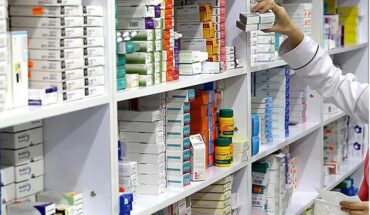Indian pharmaceutical companies have done exceptionally well in the domestic as well as in international markets, with their therapeutic coverage, e.g., Sun Pharma is the largest pharmaceutical company in India with a market share of 8.5% during FY24 as per AIOCD AWACS March 2024 data, and the 13th largest generic pharmaceutical company in the US. The company is ranked number 1 by prescription across 12 different classes of doctors, and 32 brands of the company figure among India’s top 300 brands. Ciplais the third-largest pharmaceutical company in India, first in the pharma prescription market of South Africa, the sixth largest Indian exporter to Europe and the fourth largest by prescription in the US Gx inhalation products.
Mankind Pharma claims that “India is the pharmacy of the world. Mankind is the pharmacy for Bharat” as it has the highest contribution from Tier 2 to Tier 6 Cities and Rural amongst Top 10 in Indian Pharmaceutical Market (IPM). Despite being one of the youngest companies in India, Mankind is the 3rd largest in terms of Volume, and the 4th largest Company by Value in the IPM. Torrent Pharma is the first among Indian pharma companies in Brazil. In generic pharma market of Germany, Torrent has 5th rank overall and is first among Indian pharmaceutical companies. Torrent has 11th rank among Indian players in the USA market.
Alkem Laboratories is the fifth largest player in the domestic market (Annual Report 2023-24, p.12). Based on IQVIA MAT 2023 data, the company held number 1 position in Anti-infectives, number 2 position in Vitamins/Minerals/Nutrients segment, and number 3 in gastrointestinal, Pain/Analgesics segment. Lupin is the 7th largest pharma company in India, the 3rd largest generics company in the U.S., and the largest provider of TB drugs in the world.
Dr. Reddy’s Laboratories (DRL) held 11th rank in India for FY2024 and 15th in Russia as per IQVIA data. DRL was also the 8th largest generic company in the U.S. by sales. Zydus Lifesciences Limited is the 5th largest generic company in the US in terms of prescriptions, 2nd largest company in South Africa in participated market, and the 9th largest company in Philippines in participated market. Zydus Lifesciences is also amongst top 3 in about 60% product families marketed in the US. The company has built a diverse portfolio of biological products consisting of 30 compounds, including 8 novel biologics and 22 biosimilars that spans across multiple therapies.
Divi’s Laboratories is recognized as one of the top 3 API manufacturers in the world. Three core business portfolios of Divi’s include Generic APIs, Custom Synthesis, and Nutraceuticals. Portfolio of the company includes about 160 products covering diverse therapeutic areas. The Company is the largest API manufacturer in the world for 10 of the Generic APIs manufactured. Divi’s Labs is a Business-to-Business (B2B) company that deals with relatively small number of large customers.
Product portfolio management has played significant role in the growth of these pharma companies as their product portfolio is quite comprehensive, e.g., as on March 31, 2024, product portfolio of Lupin Limited comprised 1,211 products, DRL had a total of 391 branded products in India. Cipla’s product portfolio had 1,500 products in 50+ dosage forms and 65 therapeutic categories. Torrent Pharma has earned the title of ‘The Company with the Most First Launches’, and the company has 2,000+ registered products. Product portfolio of Zydus Lifesciencesconsists of more than 5,000 products from all their business verticals. Alkem Labs had a portfolio comprising 800+ brands and 1,500+ Stock-keeping Units (SKUs). Alkem had 1,100+ product registrations in various international markets. Key product portfolio of Alkem included 44 products ranked in the Top 3 by market share, with 13 products having a market share greater than 30%.
Robust new product pipeline, including first-to-market products, puts a pharmaceutical company in a position of strength for future growth. In FY24, DRL expressed its Sustainability Goal that 25% of new-launches by the company to be first-to-market by 2027. Pharma companies introduce new products which bring affordable healthcare solutions to patients, e.g., for product accessibility and affordability, Lupin Limited had secured over 80+ registrations of anti-TB and ARV medicines across various nations in FY24 alone.
Pharmaceutical companies focus on developing medical products for a wide range of therapeutic areas and dosage forms, e.g., product portfolio of Sun Pharma spans diverse therapeutic segments, and India Business therapeutic revenue break-up for FY24 showed top contributors – Cardiology (17%), Neuropsychiatry (16%), Gastroenterology (12%), Anti-infectives (11%), Pain/analgesics (8%), Diabetology (7%), Dermatology (6%) etc. These companies actively engage in addressing all stages of the healthcare cycle, from prevention to diagnosis and rehabilitation.
With emphasis on Environment, top pharmaceutical companies are creating sustainable products these days, e.g., by replacing standard propellants with green propellants in inhaler products.
Top Indian pharmaceutical companies are also improving their ‘product-mix’ by focusing on new product launches and by enhancing their offerings in their respective segments across various geographies, e.g., DRL launched 181 new products in FY24, out of which 20 new products were launched in the U.S., 43 in Europe and 106 in Emerging markets and 13 in India. During this period, Sun Pharma launched 52 products in India and Mankind Pharma launched 42 products. Cipla launched 101 products in 2023-24 as compared to 78 in 2022-23, 93 in 2021-22, and 81 in 2020-21.
Table 1: Product Launches by Cipla Limited – Geography-wise (2023-24)
| Financial Year | Product Launches |
| India | 14 |
| USA | 13 |
| Europe | 20 |
| South Africa and Global Access | 10 |
| Emerging Markets | 44 |
| Total | 101 |
Source: Compiled from Annual Report of Cipla Limited for FY2023-24 (p.65)
Top Indian pharmaceutical companies are enhancing their product portfolio through products acquired from other companies in different categories, e.g., DRL’s acquisition of Generics prescription product portfolio in the U.S. from Mayne Pharma Group Limited included 44 commercial products, 42 approved non-marketed products, and 4 pipeline products. DRL also forayed into the OTC wellness space with the relaunch of Premama, an acquired portfolio of dietary supplements. DRL had also acquired a leading women’s health and dietary supplements portfolio, Menolabs.
Speciality medicines have become an integral part of product portfolio of certain top Indian pharmaceutical companies as speciality medicines cater to chronic, complex, and rare diseases. Annual Report of Sun Pharma (2024) highlighted that these medicines are poised to become a significant component of global pharmaceutical spending, accounting for 43% of expenditure by 2028, and are expected to command over 55% of total spending in leading developed markets. Sun Pharma has 26 Specialty Products in their portfolio which contributed almost 18% to the company’s consolidated revenues for FY24.
Pharmaceutical companies keep on identifying high value products. In case of many pharma companies, their key products contribute significantly to their performance. Revenue from new products vis-à-vis old existing products and their contribution to overall sales is closely observed.
Table 2: Percentage of revenue generated by the different product types and by the different types of product innovations launched by Lupin (2023-24)
| India | Global | ||
| Product optimizations launched in the previous 5 years | 12% | Product optimizations launched in the previous 5 years | 27% |
| Unchanged or minimally changed product or services | 88% | Unchanged or minimally changed product or services | 73% |
| Total (=100% only) | 100% | Total (=100% only) | 100% |
Source: Integrated Annual Report 2023-24, Lupin Limited (p.172)
Many pharmaceutical companies in India are enriching their portfolio by including more complex products, e.g., Lupin has invested close to 50% of their R&D spend in 2023-24 in complex products especially inhalation and complex injectables. Further, this was to maintain the lead on the respiratory front by being the first to bring products on key platforms to developed markets. For Lupin, complex products constituted around 40% of the company’s U.S. portfolio with an expected growth of more than 50% in next few years. In FY24, more than 80 per cent of the company’s new product sales in the U.S. came from non oral-solid products. Lupin also acquired Medisol S.A.S. and Lymed S.A.S. in France which is the second-largest injectable market in Europe. This added to the company’s complex generics portfolio through its injectable products. The company’s stated goal for 2024 was that product portfolio should be more than 70% in complex dosage forms, and the company could achieve the goal to the extent of 74%. Aurobindo Pharma also focused on filing of complex products and launched 62 new products within the US formulations segment, including 14 specialty products.
Top Indian pharmaceutical companies are paying attention to biologics, biosimilars, and vaccines, e.g., DRL has developed biosimilar business into a fully integrated organisation, with capabilities across development, manufacturing, and commercialisation of a range of biosimilar products in oncology and immunology over the last 25 years. DRL became the second largest vaccines player in India in FY24, through an exclusive partnership with Sanofi to distribute their vaccine brands in India. In FY24, Aurobindo Pharma had 14 biosimilars in its product pipeline. Aurobindo Pharma has a subsidiary CuraTeQ Biologics that focuses on development of biosimilars.
Pharmaceutical companies in India are also coming up digital healthcare solutions including digital therapeutic products which offer drug-free treatment and disease management platforms that enable patients to better manage their condition. A notable case is of DRL that launched Nerivio, a digital therapeutics product, for migraine management and a digital platform DailyBloom, for IBS condition management.
Top pharmaceutical companies also observe the standing of their products in terms of their ranking as the top products in their respective categories across different markets, e.g., Lupin has 25 products ranked as the top products in their respective categories and 16 products in the second position across various Anatomical Therapeutic Chemical (ATC) classifications in South Africa.
Top Indian pharmaceutical companies also anticipate market erosion in their top products due to new entrants, so these companies remain prepared to counter this with a robust pipeline as well as strategic marketing programs. Various factors such as cost and price pressures from payers, pricing pressures due to government initiatives to lower prescription drug costs, government expenditure on health, price control, the loss of exclusivity, adoption of new technologies had implications for product portfolio of pharma companies. Some of these pharmaceutical companies also attempted to develop products internally to lower their reliance on in-licensed products.
Inherent challenges are associated with managing a portfolio of drug products across multiple international markets. Success of product in these markets depends on multiple factors such as timely identification, selection, and development of viable molecules, as well as being among the first companies to launch or file for regulatory approvals. Pharma companies focus on launching products which face patent expiry in international markets. In the USA, generic drugs accounted for a substantial around 91% of prescriptions. Prominent Indian companies focus on this market, e.g., Torrent that is ranked 11th amongst the US generic Indian companies has 103 ANDA approvals (including 4 tentative approvals) and its pipeline consists of 34 pending approvals and 28 products under development to be filed over the next 3 years. During 2023-24, the company filed 2 ANDAs. Sun Pharma has 635 cumulative filed ANDAs and 531 approved ANDAs till March 31, 2024.
Top Indian pharmaceutical companies are also engaging Contract Manufacturing Organisations (CMOs) for high-volume products, e.g., Torrent Pharma reported engaging CMOs for products such as Escitalopram, Citalopram, and Zolpidem. Besides this, top Indian pharmaceutical companies are increasing focus on Consumer Healthcare (CHC) Market too that includes personal healthcare products available without a prescription. CHC market includes over-the-counter (OTC) drugs, health supplements, disinfectants, cosmetics, and consumer medical devices.
Risk Treatment Plan can vary from company to company regarding product portfolio, e.g., Lupin implemented Integrated Business Planning in FY24 to identify its product portfolio in advance and mitigate risks effectively. The company reviews the performance of their portfolio of products and services. In a way, product portfolio of progressive pharmaceutical companies aligns with industry trends and it is the Intellectual Capital of a pharmaceutical company that powers ability to consistently expand its product portfolio.
Dr. Anil Kumar Angrish-Associate Professor (Finance and Accounting), Department of Pharmaceutical Management, NIPER S.A,S, Nagar (Mohali), Punjab
Disclaimer: Views are personal and do not represent the views of the Institute.






